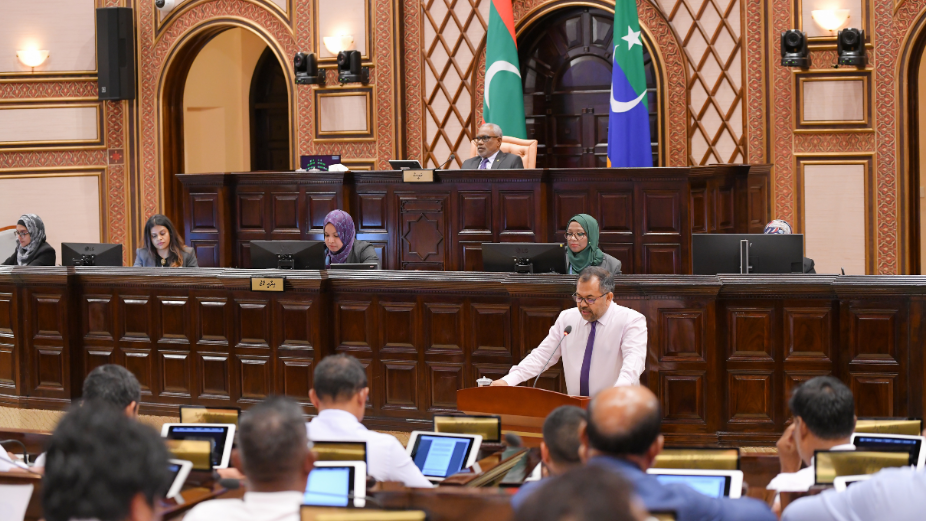
The Maldivian government has unveiled a budget proposal totalling MVR 56.6 billion for the upcoming year, focusing on expenditure reduction, fiscal reforms, and investment in key sectors. Finance Minister Moosa Zameer presented the budget on Thursday, outlining major allocations, expected revenues, expenditures, and strategies for economic growth in 2025.
The budget estimates projected grants and revenue amounting to MVR 39.8 billion, with total expenditures estimated at MVR 51 billion. This results in a deficit of MVR 9.4 billion, marking the lowest budget deficit in recent years. The government anticipates an economic growth rate of 6.4% for 2025.
For comparison, the approved budget for 2024 was MVR 49.5 billion. A supplementary budget of MVR 5.5 billion was later passed, increasing the total budget for 2024 to MVR 55 billion. The 2025 budget represents a significant increase, reflecting the government’s commitment to stabilising and strengthening the nation’s financial standing.
A key highlight of the 2025 budget is the largest allocation yet for the Public Sector Investment Programme (PSIP), amounting to MVR 12.4 billion. This substantial investment aims to drive development across various sectors and improve public services nationwide.
Emphasis is also placed on expenditure reduction, with targeted savings of MVR 6.6 billion through several cost-cutting strategies. These measures include transitioning to a targeted subsidy system to ensure subsidies reach those who need them most, and reviewing and reforming the Aasandha national health insurance scheme to align with sustainable practices. The government also plans to mitigate fiscal and external risks related to oil price fluctuations by implementing strategies to lessen the impact of volatile oil prices on the economy.
Revising state pensions to prevent redundancy and reforming State-Owned Enterprises (SOEs) are also part of the cost-cutting measures. These initiatives aim to enhance efficiency and reduce financial burdens on the government, contributing to the overall goal of expenditure reduction.
In addition to cost-cutting, revenue enhancement measures are projected to bring in an additional MVR 4.9 billion. The finance ministry has prioritised sources of income in foreign currency, outlining several strategies to increase revenue. These include raising import duties on cigarettes and introducing a bidding process, increasing airport taxes and associated fees, and adjusting green tax rates to reflect current environmental priorities.
Other revenue-increasing measures involve introducing a fee for private sand dredging projects and increasing the Tourism Goods and Services Tax (TGST) rate. The government also plans to fully implement the destination principle in the Goods and Services Tax (GST) system to align with international standards, and to levy a frequency spectrum charge by introducing fees for the use of certain communication frequencies.
The finance ministry noted that a total of MVR 11.5 billion in fiscal reforms are incorporated within the 2025 budget. These reforms aim to stabilise and strengthen the nation’s financial standing while pursuing targeted development initiatives across key sectors.












